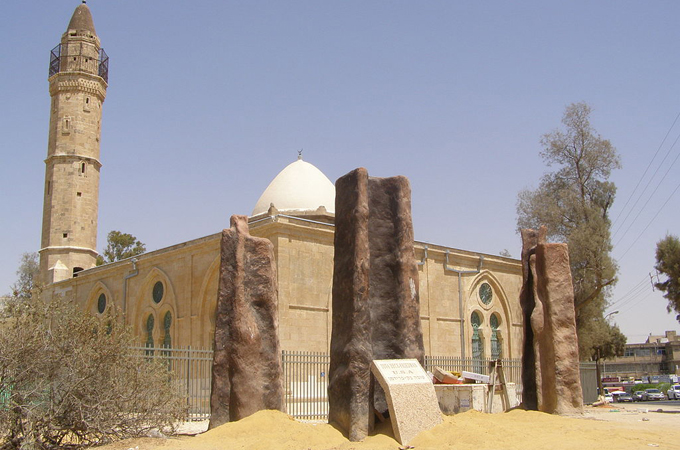This week, the Israeli city of Be'er Sheva (Beer el-Sabe) will hold a wine and beer festival in the courtyard of the city's former Great Mosque. The municipality's plans have provoked anger from the country's Palestinian citizens, including a legal challenge by minority rights group Adalah, as well as a protest tent and condemnation by community leaders and politicians.
This episode is a microcosm of Israel's hidden history, a country where town and country alike is strewn withreminders of the ongoing ethnic cleansing at the heart of the establishment of a "Jewish and democratic" state.
The Palestinian population of Be'er Sheva was expelled in 1948, with the operation order for the town's conquest calling for the "demolition of most of the town". Some residents ended up in refugee camps in the Gaza Strip.
The mosque had been built in 1906 and was used for prayer until the Nakba. Afterwards, it was initially used as a prison and then a courthouse, before being opened as a museum. A sign seen earlier this summer in the Negev Museum reads: "The toilet rooms are in the building formerly used as a mosque". Such a transformation is not without precedent: the mosque of ethnically cleansed Palestinian village Al-Khalisa is now the museum of Kiryat Shemona.
Palestinian citizens have long sought to restore Be'er Sheva's Great Mosque as a place of prayer and worship. Last year, and almost a decade after petitioners went to the High Court of Justice, the judges ruled that the building be used as an Islamic museum. Even this was better than the position of the Be'er Sheva municipality, who sought to open a "Museum of the Cultures of the Sons of Abraham", and have opposed the use of the mosque for prayer on the basis it will "create violence and disturb the public order".
The case was noted in the most recent US State Department International Religious Freedom report on Israel, which noted the "governmental and legal discrimination against non-Jews and non-Orthodox streams of Judaism".
The story of Be'er Sheva's mosque reminded me of a recent exchange I had with reporter for The Jerusalem PostLahav Harkov. Responding to her tweets about a visit to a winery in northern Israel, I reminded Harkov that the kibbutz in question stood on the land of the ethnically cleansed Palestinian village of Saliha (where Israeli forces killed 60 to 90 villagers gathered in a house).
Harkov subsequently tweeted that "it was a war" and "tragedies happened on both sides", saying "there are tourist sites on battlefields across the world. It's not that big of a deal IMHO". Revealingly, the journalist then added: "Also, I'm an unabashed Zionist & I think Israel rightfully & historically belongs 2 Jews."
Simply pointing out the history of 1948 provoked a series of justifications that resulted in a frank defence of ethno-religious privilege. As Gideon Levy wrote in Ha'aretz recently about Tel Aviv, a city "whose reputation for enlightenment and openness is world renowned, is built in part on ruined [Palestinian] villages, and it is unwilling to acknowledge it".
This refusal stems in part from the scale of the ethnic cleansing that took place in the Nakba. Around 90,000 immigrants were settled in Palestinian homes in Jaffa, downtown Haifa and Acre, and in 1954, more than one third of Israel's Jewish population lived on absentee property. 95 per cent of new Jewish settlements established 1948-53 were on absentee property. By 1951, the Jewish National Fund's "Naming Committee" had assigned 200 new names as part of the process of removing Palestinians from the map in more ways than one.
But this is not just "ancient history". In many cases, the Palestinians expelled from their homes and villages live just a few miles away in refugee camps across the border, forbidden from returning because they are not Jewish. Some are even citizens of the state, but despite this, are still stripped of their property by the systematically discriminatory land regime. More
